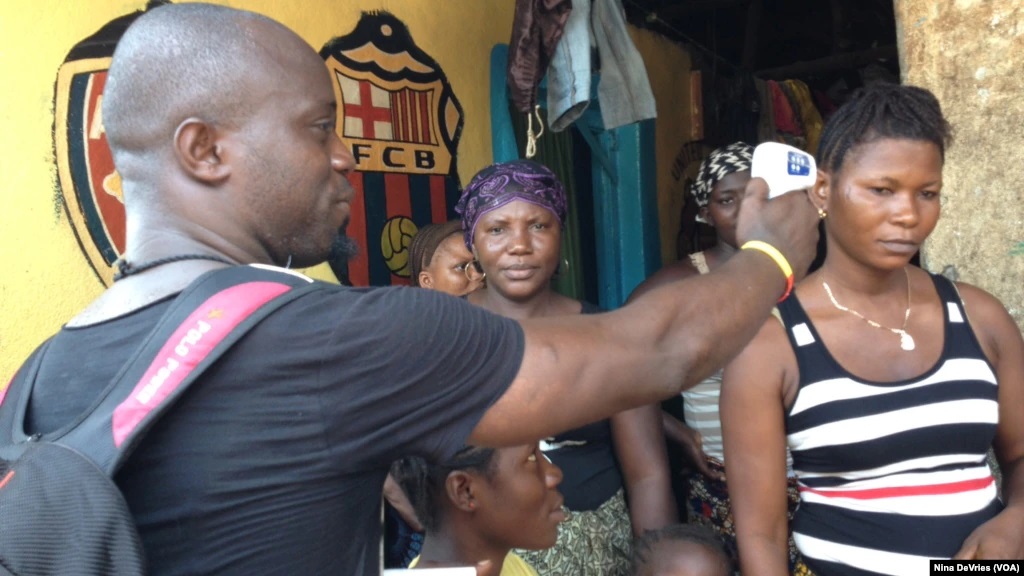As Ebola cases have decreased in Sierra Leone, there is concern about how the crisis has affected the justice system. Longer jail times and what some say are unfair arrests have occurred.
A state of emergency, which includes certain restrictions of movement, has been in place in Sierra Leone for almost a year. But because Ebola cases have decreased, some restrictions have recently been lifted.
The streets of Freetown look back to normal. Vendors can now stay open longer and more people are using public transit.
Isatu Sesay used to sell tomatoes and other food products at Lumley market in Freetown. She says police raided her food stand and they beat her a couple of months ago . They say it was because she was operating past the curfew for business hours. But Sesay says it was 20 minutes before the mandatory closing time.
Sia Deen is a social worker with the nongovernmental organization Advocaid that provides services such as legal counseling to women in conflict with the law. Advocaid got Sesay released on bail after more than a month in jail.
“They keep people inside there a long time, that is the judiciary not doing work effectively, a lot of these women have trials and they do not do the indictment quickly,” Deen said.
Sesay says her fellow vendors are glad to be getting more business following the easing of restrictions. But she is afraid of the police and does not have the financial means to reopen her market.
The Human Rights Commission of Sierra Leone has also raised concern about police conduct. Commission chairman Brima Sheriff says not all police should not be given a bad reputation, many have been helpful in keeping order. But there have been allegations of police beatings, including to one of the members of the commission.
Sheriff says there is also concern about equal rights under the state of emergency. For example shops have to be closed, but the commission hears of bars being open or given permission for wedding parties, while others are not given permission.
“Generally speaking state of emergencies are not human rights friendly, because they limit rights of citizens, in this case, right of movement, assembling , these are limited. But there are rights people are supposed to enjoy,” Sheriff said. “During a state of emergency it is allowed by constitution and even by international provisions, the international covenant on Civil and Politics Rights, Article 4, talks very clearly about that, that you can limit it, but it has to be limited specifically for the purpose of which it was evoked.”
Human rights group Amnesty International has voiced concerns about people’s lengthy detentions without charge and bans on peaceful protests and marches.
Sierra Leone Attorney General and Minister of Justice Frank Kargbo says police may have used excessive force. He says the government does not condone this, but he says he needs proof to investigate further.
He says overall police are doing a good job, but admits there is always room for improvement.
“There may be a need for a refresher course such as how to handle high stress situations,” he said.
Kargbo says gatherings during the state of emergency are supposed to be limited and that is why protests have not been allowed.
“Any gathering of more than 10 persons, is banned from the regulations and in the event of more than 10, it has to be specifically related to efforts directed at eradicating the Ebola virus disease,” he said.
He says he is open to further discussions with human rights groups on how the state of emergency is being handled.











